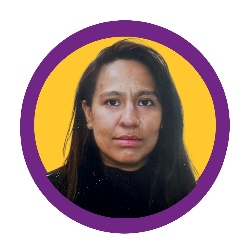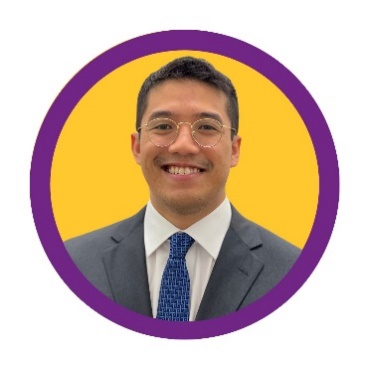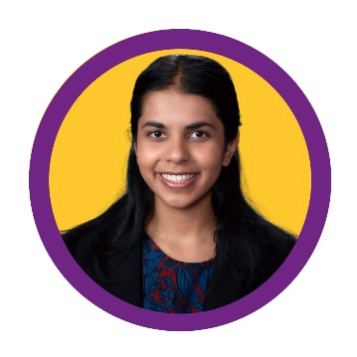Welcome NYACP Advocacy Interns!
 Fahema Nadira, MD
Fahema Nadira, MD
I chose to participate in NYACP’s Advocacy Internship Program because I truly believe that as a future primary care physician, my role extends far beyond the walls of a clinic room. I view primary care medicine not solely as providing care to a community but also as a platform for driving systemic change that improves public health, advances health equity, and addresses the structural and political factors influencing patient outcomes. This four-week advocacy-focused program presents an invaluable opportunity to marry my clinical training with hands-on policy experience and to build on the skills necessary to advocate effectively for my patients at a legislative level. What attracted me most to the NYACP Advocacy Internship was its sustained commitment to empowering residents to become physician advocates by exposing them to the entire legislative process, policy development, and the nuances of healthcare reform in New York State.
I very much look forward to deepening my understanding of how laws and regulations are drafted, debated, and implemented, and how physicians can influence these decisions to support policies that are evidence-based, ethically sound, and patient-centered. I am especially interested in learning how to craft compelling advocacy messages, engage with legislators (including assembly and state members) and their staff, and build lasting coalitions with other healthcare professionals and community stakeholders. Through participation in legislative meetings, policy briefings, and public health initiatives, I would like to build my confidence in speaking up on behalf of vulnerable patient populations and on critical issues like access to care, funding, health disparities, and physician wellness. Furthermore, I see this internship as a unique opportunity to connect with mentors and peers who are equally passionate about medical advocacy, and to be part of a community that believes in using its voice to create a better, more just healthcare system.
Ultimately, I hope to emerge from this 4-week internship with a stronger understanding of the power physicians hold as advocates, a clearer sense of how I can integrate advocacy into my future career, and a toolkit of practical skills—from writing policy memos to testifying in hearings—that I can use throughout my professional life. I believe that primary care and physician advocacy are no longer optional in today’s rapidly evolving healthcare landscape—it is a responsibility. By choosing this internship, I am taking a step toward fulfilling that responsibility and preparing myself to be not just a provider of healthcare, but also a leader in shaping the policies that govern how that care is delivered. I am very excited to learn from NYACP’s experienced policy team, participate in real-time advocacy efforts, and contribute meaningfully to ongoing campaigns that impact patients across New York State.
In short, I joined this program to become a more informed, engaged, and effective advocate—someone who can translate the needs of patients into legislative action and who understands that true health care reform begins with the voices of those who serve on the frontlines.
 Reflection: Hopes for participating in the Advocacy Internship Elective? De-mystifying Advocacy
Reflection: Hopes for participating in the Advocacy Internship Elective? De-mystifying Advocacy
Brent Arcayan, MD
This past December marked the half-way point of three-years of internal medicine residency training completed so far, leaving roughly 18 months left for an otherwise decades-long journey. Since the beginning, I knew that becoming an “attending physician,” was one way of obtaining the knowledge, power, and voice that could be used to make a difference with the LGBTQ+ community I identified a part of.
As of writing this, I am staring down the barrel of “in one and a half years, I am supposed to be emerge from my cocoon at the end of an 11-year journey as an intelligent, spectacle-donning “attending physician,” capable of knowing and handling all” –- and realizing that while I have gotten fairly good at interpreting labs, sending workups, and even managing critically ill patients in the hospital, there is still so much to "being a good doctor,” that there is for me to learn.
Knowing that the end of my training is nearer each day, I hope to take full advantage of the Advocacy Internship with the ACP to:
1. Develop a better understanding of who I am, what type of community-oriented primary care physician I can be, and learn all the ways I can better understand and advocate for my patients both inside and outside of the exam room
2. “Demystify ‘advocacy’” and spend time absorbing as much knowledge, language, and skills I am able to during these four weeks together. From the very concrete skills of understanding the legislative environment, how to navigate, identify and intervene on bills, to broader skills of how to efficiently and effectively mobilize/organize a group around a cause, and how to foster a network of community.
The job and scope of a physician can feel so wide at times: one day in residency I can be in the ICU placing a central line so the intravenous epinephrine can induce the heart to better perfuse vital organs in the coming minutes, and another day I can spend an afternoon in clinic helping a patient fill out his application for a reduced fare Metro card. Through my experiences in residency, the ones I have found most grounding and impactful are not necessarily when patients are critically ill but rather in health prevention and promoting health negating poor health outcomes. For example, I recently had the opportunity to develop a 1-hour lecture to be given to ~30 co-residents based on LGBTQ+ health. I decided to use the hour to invite two transgender patients to speak on a “patient panel,” to an audience of ~30-40 of our co-residents to help bridge a known knowledge and comfortability gap within our own program. Although the development and coordination of an event like this felt wholly uncomfortable and outside of my comfort zone, it was incredibly gratifying to hear from my co-residents how valuable they found the patient panel and to know I did something (no matter how small or big) to help narrow this health equity gap.
I am so incredibly appreciative of the opportunity to take this four-week elective during my medical training where I am able spend some time away from the busy medical floors or critical care units, and dedicate myself to "de-mystifying advocacy,” by spending real time on the ground learning from and absorbing as much as I can from you all! With the end of residency nearing, I am realizing that once this 11-year training project ends, it is only followed by a lifetime of practicing medicine but on your own, without Arts & Practice lectures or elective time for Advocacy Internships – which highlights this golden opportunity with the ACP to learn all I can before being pushed out of the nest, and into the unknown.

NY ACP Statement
Shruti Varadarajan, MD
Advocacy has always been an integral part of the medical profession. In our medical training, we are taught to advocate for our patients, whether it’s to their insurance company for a treatment that can really alter their trajectory, or to our colleagues in the hospital to make sure patients are getting the care they require in a system that is already overburdened. As a result, many of us in this profession are familiar with the ideals and value of advocacy as a concept; however, we lack the tools and expertise to navigate the rooms where high-impact, far-reaching decisions are made at the legislative level. Furthermore, as a collective, physicians and trainees are woefully behind the times when it comes to unionizing and labor laws, and I do believe that is partly because we are naïve to our legal rights and representation.
In a broader sense, this is also a polarizing and dynamic moment for our nation politically, and therefore legislatively. Currently we are expecting major funding cuts to be made to Medicaid/Medicare; not only are these going to affect millions of patients, but these are also the funding source for medical education and trainees in schools and academic centers throughout the country. In addition, we are seeing a rise in mistrust of the scientific enterprise. A not-so-recent development in our national politics that has concerned me greatly as a woman and a physician is the overturning of Roe v. Wade in 2022, thus removing the federal right to abortion and allowing individual states and legislative bodies to create their own rules regarding a pregnant person’s autonomy.
Although physicians are traditionally encouraged to be apolitical, I believe there is a way to continue serving our patients with a nonjudgmental approach while also advocating for the institution of medicine in a sustainable and effective manner. To this end, I am looking forward to learning tools and strategies from the ACP to thread advocacy into my career. I am hoping to learn more about policymaking and lobbying for legislation from the experience of seasoned professionals. From a medical perspective, it often feels like a lot of these decisions are made in a vacuum, but already from my first week I am able to appreciate that health care policy is a complicated, multifaceted endeavor with several stakeholders.
While I initially started out with an interest specifically in reproductive rights, I think there are several areas to target that I will need to reflect on to spend my time on an issue that is both relevant and important to me and my colleagues. My hope is that the final paper that I complete as a result of this rotation will be worthy of discussion with a policymaker in any capacity and perhaps will contribute to the ACP’s ongoing advocacy in some small way. I am looking forward to engaging with our community and its representatives in a productive and significant manner.